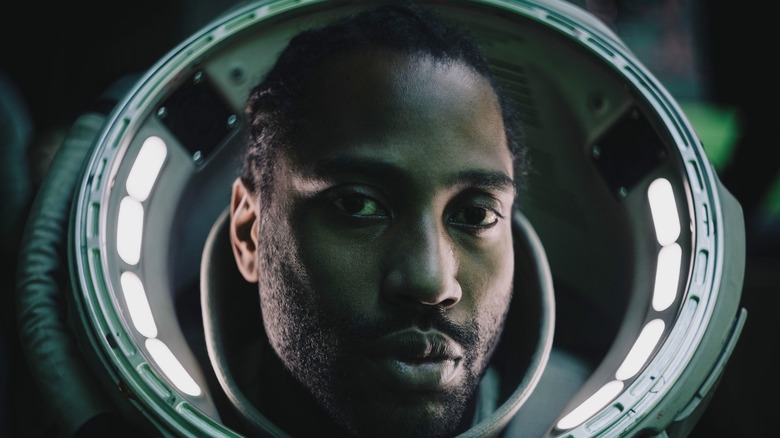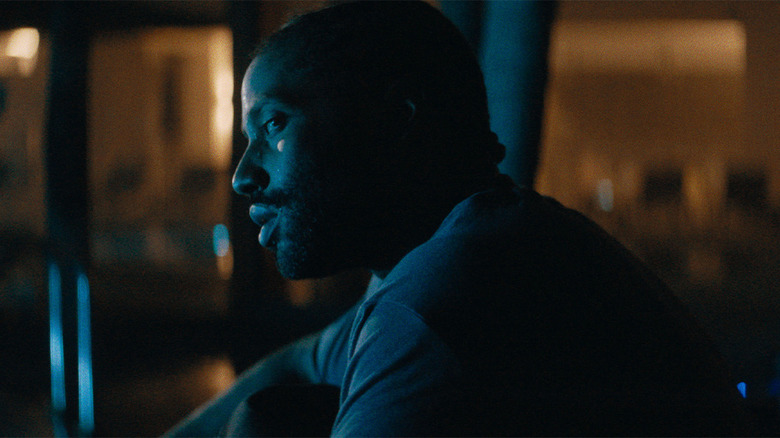The Creator: Is Joshua An Android?
Contains spoilers for "The Creator"
Plenty of science-fiction books, TV shows, and movies have explored the breaking of boundaries in what we consider "human" and "robotic." After all, if artificial intelligence becomes advanced enough, it will become indistinguishable from human consciousness. These ideas are on full display in "The Creator," a new sci-fi movie that explores heady concepts against a backdrop of a global war between humans and robots. It's not unlike similar projects like "The Terminator" and "Blade Runner," and like the best of sci-fi, any answers are far more nuanced than one would automatically assume.
For example, "The Creator" blurs the lines physically of what's human and robot. While some robots do, indeed, look inhuman, there's a background detail where humans can donate their likenesses to go onto these androids, making them look more natural. This is the case for Ken Watanabe's character, Harun, and the child at the center of the plot, Alfie (Madeleine Yuna Voyles), is the ultimate merging of man and machine. And while Joshua (John David Washington) fights on the side of humanity at first, he also represents a new type of humanity.
Viewers will notice early on that Joshua has cybernetic limbs, most notably an artificial arm. While his consciousness is undeniably human, he symbolizes how humanity and robotics can interact advantageously.
Joshua in The Creator shows how humanity can work with new technology rather than against it
Toward the end of the story, "The Creator" changes the audience's perspective on AI and robotics. While they've been portrayed as malevolent entities throughout most of the movie, it's revealed they actually aren't interested in wiping out humanity. In fact, the nuclear weapon that detonated in Los Angeles resulted from human error rather than a direct attack from new technology. This new AI and the robots that utilize it just want a chance to live on their own terms, but since humanity fears that which it does not understand, it launches an all-out war.
Joshua symbolizes an idea blending of these two ideas. He's fully human, but he uses new technology as a tool to help him live. Through him, the message becomes clear that emerging technologies aren't necessarily something to be afraid of. They don't need to replace humans; they can merely serve as tools to benefit all of humanity.
It's a particularly prescient point to make at the moment with the rise of AI. Most of what most people refer to as "AI" in modern tech circles doesn't actually refer to "artificial intelligence." Instead, things like ChatGPT are more like large language models, but the threat remains the same. Much has been touted about how AI could be developed enough to replace writers and lawyers, posing an existential threat to those professions. But AI doesn't have to do away with humanity. If it was marketed as merely a tool, people may be more open to the idea of incorporating it into various jobs. However, the tech industry trying to disrupt so many fields makes people wary, causing them to wage war against something that could produce a net good for society.
"The Creator" is playing in theaters now.

